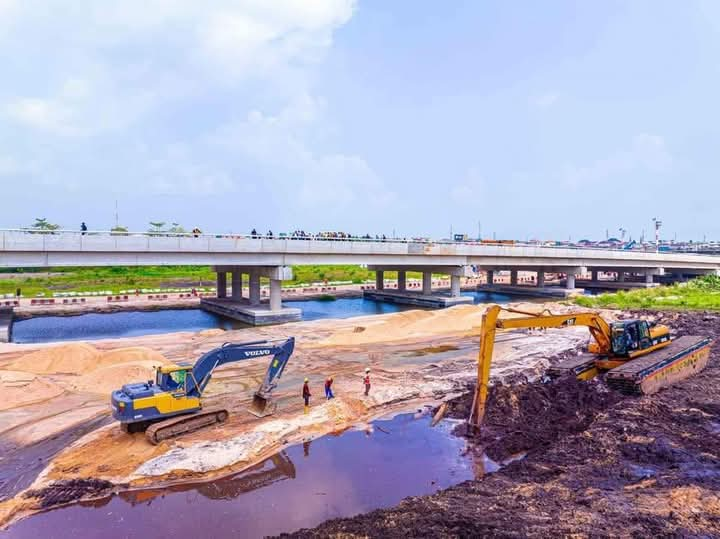The Lagos State Government is set to commission the Lagos-Opebi-Mende Road and Bridge Project this month, marking a major milestone in its ongoing efforts to combat the city’s persistent traffic congestion. This infrastructure development has been designated as one of Governor Babajide Sanwo-Olu’s legacy projects, aimed at transforming mobility within the Ikeja-Ojota corridor and beyond.
During a recent inspection, government officials expressed confidence in the project’s impact, noting that each completed phase brings Lagos closer to a modernized, efficient transport system. The infrastructure is expected to ease commuter stress, enhance connectivity, stimulate economic activity, and significantly improve the overall transport experience for residents.
Constructed by Julius Berger Nigeria Plc, a leading engineering construction firm, the Lagos-Opebi-Mende project reflects the company’s commitment to tackling complex urban challenges. The scope of the project, initiated in 2022, includes the reconstruction of Opebi Road, the construction of the Odo Alaro Bridge, two underpasses, deck-on-pile link bridges, and the reconstruction of the Maryland U-turn.
According to Julius Berger’s Project Manager, Dymitry Denysenko, key components—such as the Opebi Road, Odo Alaro Bridge, Maryland U-turn, and the deck-on-pile link bridges—are now 100% complete. Odo Alaro Underpass 1 has been finalized, while Underpass 2 is nearing completion. The entire project, including a 4.52 km road length, 40-metre pile depths, 1,500 bored piles, and a 640-metre bridge structure, is on track for handover by May 2025.
“The near-completion of this project highlights our dedication to delivering enduring infrastructure solutions for Lagos,” Denysenko said.
Governor Sanwo-Olu emphasized the long-term benefits of the project, reaffirming his administration’s focus on impactful development: “It is a known fact that the people are the ultimate beneficiaries of development projects like this. Our government remains committed to delivering the dividends of democracy across all sectors.”
Beyond Opebi-Mende, Julius Berger is also undertaking major reconstruction work on key roads in Lagos Island, including Idumagbo Avenue, Adeniji Adele, Ojo Giwa, Oroyinyin, Okoya, Moshalashi, and Iga-Iduganran Streets. These roads had long posed serious logistical challenges for residents and businesses due to chronic congestion.
Regional Manager, Technical (Region West), Christl Thomas, affirmed the company’s resolve: “What we’ve started in Idumagbo is just the beginning. Once completed, we will comprehensively solve the traffic issues in that axis.”
Urban planner Soji Wilson added perspective: “Lagos is home to over 24.5 million people and holds 40% of Nigeria’s registered vehicles, yet it is the country’s smallest state by land area. Traffic congestion is inevitable when infrastructure doesn’t keep pace with growth.”
He noted that Julius Berger’s interventions represent a sustainable path forward: “We’re confident these efforts will bring lasting relief to millions of commuters.”
As Lagos continues to grow, infrastructure projects like these are vital in building a more accessible, efficient, and livable city for all.

